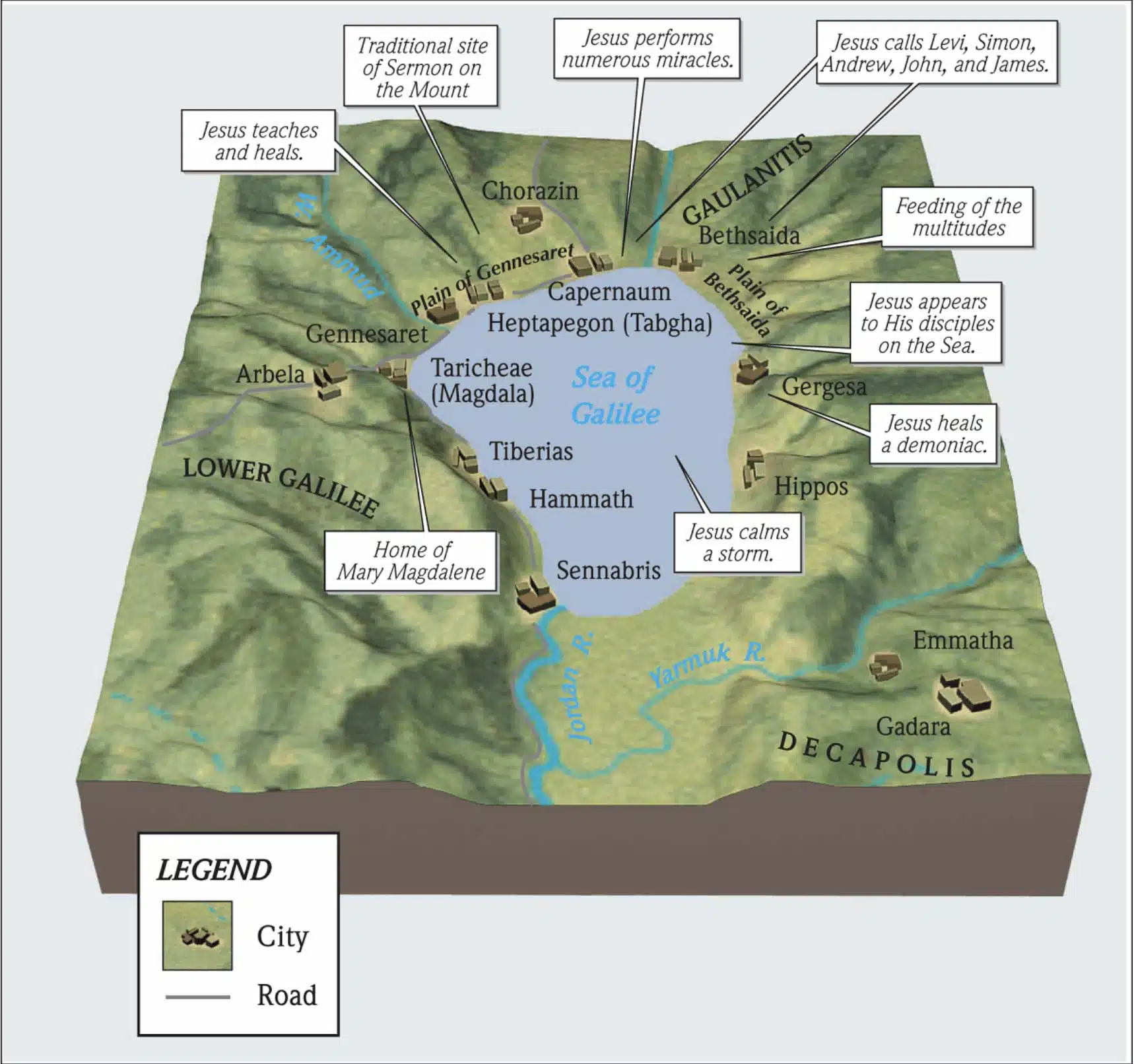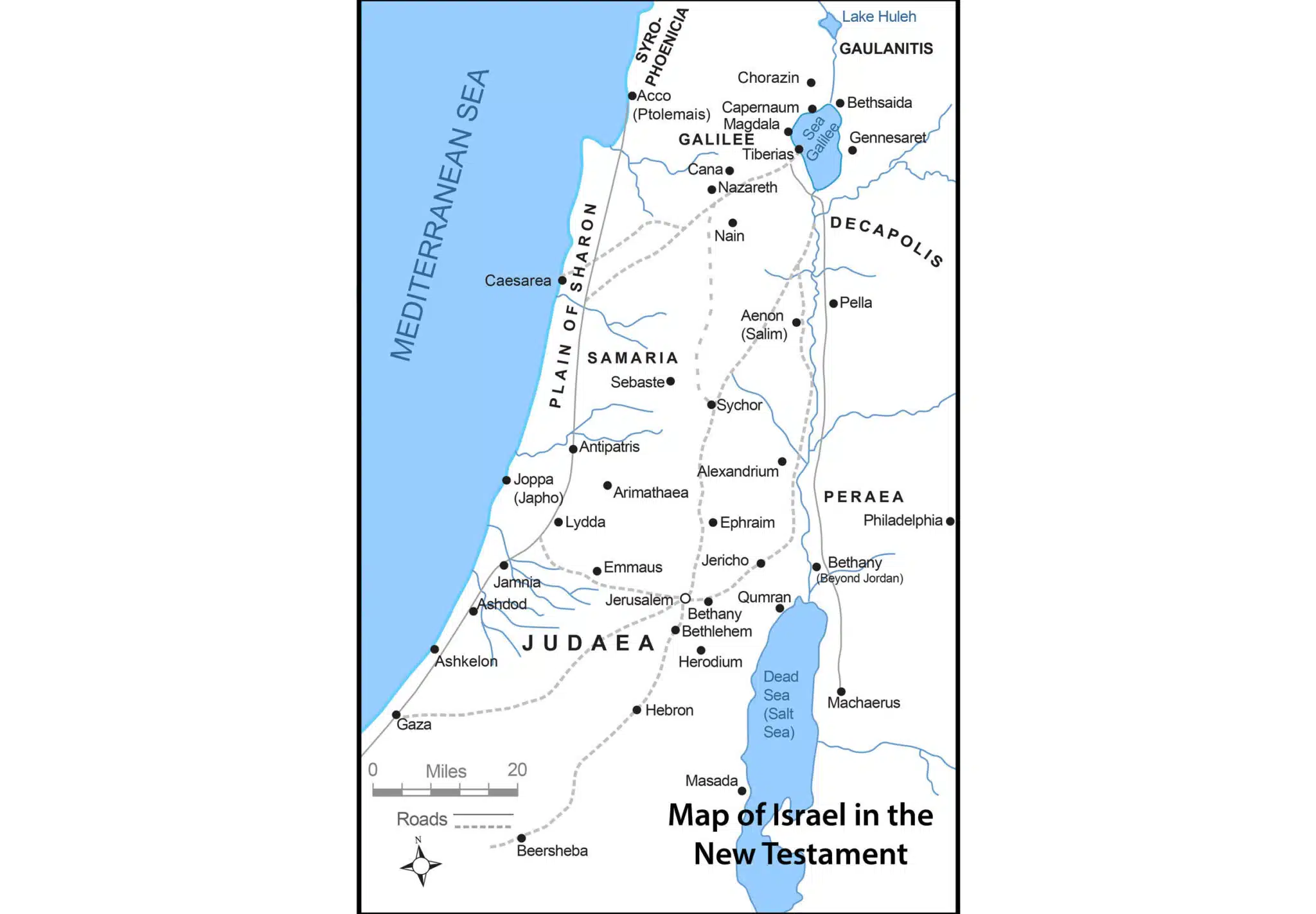Matthew connects the miraculous birth of Jesus with the prophecy from Isaiah and the theological wonder that Jesus is God. After his genealogy and the descriptions of miracles and angelic dreams, Matthew rather plainly states the incredible, historical, wondrous fact that Jesus was born.
The parallel account of this event is found in Luke 2:1-7.
All these events fulfilled a Messianic prophecy spoken of long before by God’s prophet Isaiah. Matthew reiterates Jesus’s divinity and lists the first instance of what will be about nineteen prophetic fulfillments he explicitly chronicles. (There will be numerous other Messianic fulfillments that he will reference and symbolically allude to that aren’t made explicit)
Prophecies frequently have multiple fulfillments, often one in the immediate time frame and others in the future. Matthew cites Isaiah:
“Therefore the Lord Himself will give you a sign: Behold, a virgin will be with child and bear a son, and she will call His name Immanuel” (Isaiah 7:14).
Originally, Isaiah spoke this prophecy to Ahaz, king of Judah. Isaiah told him that the foe he feared would soon be vanquished by Assyria. That foe was the northern kingdom of Israel, made up of the ten tribes that broke away and formed their own kingdom during the reign of Rehoboam. Isaiah prophesies that a virgin would have a baby, and before that baby reached the age of knowing good and evil (i.e. was still a toddler) the kingdom of Israel would fall to Assyria. God would be with Judah (Immanuel means “God with us”) in protecting them from Israel. Ahaz chose not to trust in God or heed Isaiah’s warnings. This prophecy proved true within the timeframe that Isaiah said it would.
But this prophecy also applied to an even more unbelievable event, some 700 years in the future. Namely, that a virgin would conceive of the Holy Spirit, and Immanuel (“God with us”) would occur—God would dwell among humans in human form: the man, Jesus, the Messiah.
Mary was a virgin who was with child by the Holy Spirit, and was to bear a Son (v 23). However, instead of calling the son Jesus, which describes His function of saving His people from their sins, Isaiah cites an additional name for the Son born of the virgin—Immanuel, which translated means, “God with us.” So not only is Jesus given His name (Yeshua, or “Yahweh Saves”); He is also called “God with us.” Both names indicate that Jesus is the Divine Son of God.
The passage concludes by resolving Joseph’s story. He awoke from his sleep and did as the angel of the Lord had commanded him in the dream (v 24). Joseph set aside his plan to put Mary away secretly. Joseph courageously and readily obeyed God, and took Mary as wife. This showed he had a heart after God’s heart, as did his forefather King David (1 Samuel 13:14). Joseph went beyond what God commanded, and kept Mary a virgin until she gave birth (v 25). The text does not tell us why, but it seems reasonable that Joseph saw this as an act of worship, to honor the work of the Holy Spirit in Mary. When Mary bore a Son, Joseph named him Jesus, again following the command given him by the angel of the Lord.
Biblical Text
22 Now all this took place to fulfill what was spoken by the Lord through the prophet: 23 “Behold, the virgin shall be with child and shall bear a Son, and they shall call His name Immanuel,” which translated means, “God with us.” 24 And Joseph awoke from his sleep and did as the angel of the Lord commanded him, and took Mary as his wife, 25 but kept her a virgin until she gave birth to a Son; and he called His name Jesus.
Check out our other commentaries:
-
Romans 14:5-9 meaning
Christ died and resurrected to be the Lord of our lives. There may be petty differences in how we live, but whatever we do should...... -
Revelation 20:11-15 meaning
The dead are judged by their deeds and those whose names are not found in the book of life are thrown into the lake of...... -
2 Thessalonians 3:6-15 meaning
Paul deals with an issue within the Thessalonian church. There are some believers who aren’t providing for themselves by refusing to work. ...... -
Leviticus 23:3 meaning
God declares the sabbath day to be one of His appointed times...... -
Genesis 24:20-27 meaning
After Rebekah waters the camels, Abraham’s servant asks her who she is. She tells him she is the daughter of Bethuel, the son of Milcah......




